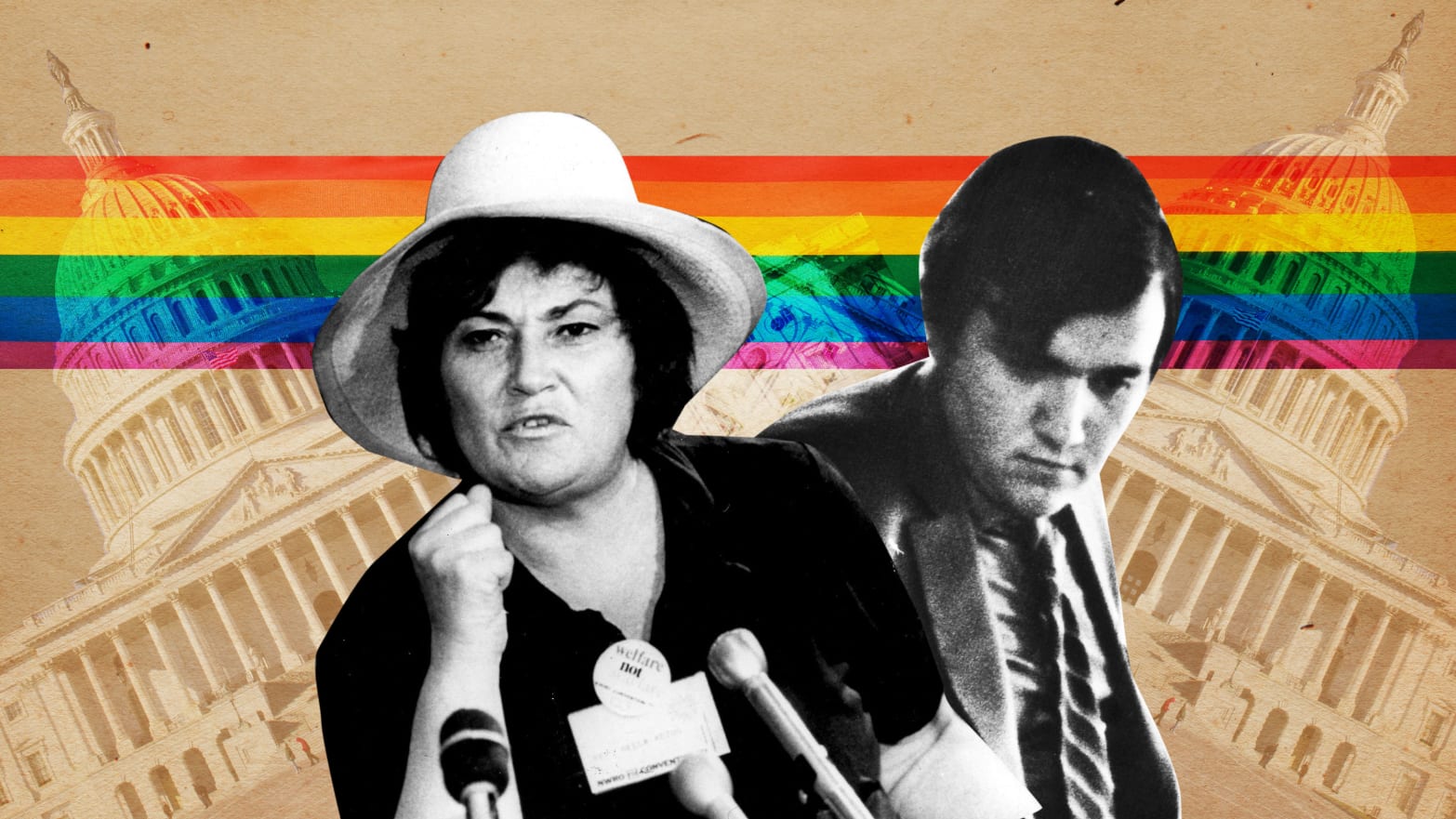When the news broke that Rep. Bella Abzug had introduced a bill to protect lesbian and gay people from discrimination to Congress, David Mixner cut out the article and hid it the top drawer of his dresser. The year was 1974. Mixner, later an adviser to then-President Bill Clinton, wasn’t yet out as gay.
“Most of us hated ourselves and didn’t think we deserved equality,” the nationally renowned activist and author remembers. “That was a symbol of great hope to have someone in the United States [Congress] say these people deserve equality.” The Equality Act of 1974, which never moved out of committee, changed Mixner’s life.
“Two years later, I came out in good part because I thought they were people who believed we will normal and OK and that we deserve protection,” he said.
The original bill stated all people should be free from discrimination “regardless of their race, color, religion, sex, marital status, sexual orientation or national origin.” Gender identity protections, which cover transgender people, weren’t part of the original language.
The bill covered public accommodations, education and other business services.
For the first time in 45 years, a House of Congress could pass an iteration of the bill, which now includes transgender protections.
On March 13, congressional Democrats introduced the Equality Act, an updated version of the 1974 bill. It then had its first ever hearing in the House Judiciary Committee.
If passed, the landmark nondiscrimination bill would amend the Civil Rights Act of 1964 to add protections for LGBTQ people in public spaces, employment, housing, education, federal programs, credit, and jury service.
The Equality Act is well-positioned to make historic advances in 2019. Its reintroduction was greeted with 240 total cosponsors in the U.S. House and Senate, meaning that 45 percent of Congress has already come out in support of the bill.
If signed, it would be the first national nondiscrimination law protecting LGBTQ people.
Few of the bill’s original sponsors in 1974 will be alive to see that victory, however. Abzug, who reintroduced the landmark legislation the following year as the Civil Rights Amendments of 1975, died in 1998.
Elizabeth Holtzman, one of the living sponsors of the 1975 bill, said she was “very proud to be an early supporter of that legislation.”
“I've always fought against discrimination,” the former New York congresswoman said. “I was in the civil rights movement in the south in the early days of the civil rights movement in the early 1960s. I fought for women’s rights when I first got to Congress. This just seemed like part of the effort to fight for justice.”
Of the 23 co-sponsors who signed onto the 1975 bill, just a handful are still alive. The Daily Beast successfully contacted John Burton and Charles Rangel, whose memories of the 44-year-old legislation have faded somewhat over the years.
When asked what led him to support gay rights decades before the country caught up to equality, Rangel told The Daily Beast it was the “right thing to do.”
“I don’t recall now anybody ever asking why among all the human and civil rights that I was sent to Washington to support, why would I be supporting gay rights,” says the retired California congressman. “It never, never was a courageous thing on my part.”
Burton, whose recollections of the bill were frequently punctuated with expletives and colorful asides, remembers being asked what his mother would think of him supporting gay rights. She was a “pretty devout Catholic,” he recalled. The former California congressman shot back: “She wouldn't give a shit one way or the other.”
While Burton claims what other people did in the bedroom wasn’t a “big deal” to him, he says the issue was bigger than sexual orientation. It was about continuing America’s march toward progress.
“When I grew up, there weren't any African Americans playing basketball in the pro league,” he told The Daily Beast. “I remember when abortion was a crime, and the sentence for marijuana got you 20 years in prison. The country is evolving. It’s not gone as fast as it should have, but it’s gone pretty fast.”
John D’Emilio, the renowned LGBTQ historian, remembers the bill’s reintroduction in 1975 well.
The Civil Rights Amendments of 1975 coincided with a pair of major milestones in the equality movement. Lambda Legal, the advocacy organization which lobbies for LGBTQ equality through the court system, was founded the year prior. So was the National Gay Task Force, which is now known as the National LGBTQ Task Force.
D’Emilio says he paid little attention to the legislation at the time.
“It's not like there was even the slightest chance that any progress would be made on it,” D’Emilio told Daily Beast. “It was more of a symbolic action at that point.”
When it was originally introduced in 1974, only Abzug signed onto the bill. Despite the addition of names like Shirley Chisholm and Ed Koch, supporters of the Civil Rights Amendments of 1975 had no illusions about its chances. This was just two years after the American Psychiatric Association declassified homosexuality as a mental illness and three years before Harvey Milk’s assassination.
“No one expected that it would pass or be signed into law,” Task Force Director of Advocacy and Action Stacey Long Simmons said.
As the LGBTQ movement advanced issue after issue, the basic protections introduced in 1974 took a backseat to things like marriage and open military service. While Wisconsin became the first state to ban employment discrimination on the basis of sexual orientation in 1982, 29 states have yet to pass fully inclusive LGBTQ protections.
No state took action against gender identity discrimination until 1993, when Minnesota passed its Human Rights Act. That law still only offered protection in employment, meaning that trans people could still be denied housing because of who they are.
Even that step went farther than the national nondiscrimination bills in 1974 and 1975, which snubbed gender identity entirely.
D’Emilio believes the legislation—which met notable resistance from trans leaders because of its partial solution to LGBTQ inequality—was about taking a first step toward the future. Few of its proponents would have predicted, however, that it would take 45 years for the bill to clear a single chamber.
“You have to start a process at some point,” said D’Emilio.
As was the case four decades ago, even the Equality Act’s most ardent supporters say the legislation faces a tough road to passage. Republicans hold a six-seat majority in the Senate. Meanwhile, President Trump has voiced support for a bill that would legalize discrimination against LGBTQ people by allowing businesses to deny them services if they cite religious convictions.
While the bill will continue to face challenges under an administration that has unilaterally rolled back LGBTQ rights, Holtzman believes its day is coming.
“For people who have been struggling against discrimination and against bigotry, you can't lose heart,” Holtzman claimed. “There's still so much hatred, anger, and ongoing struggle, but enormous progress has been made. We have to recognize that.”

